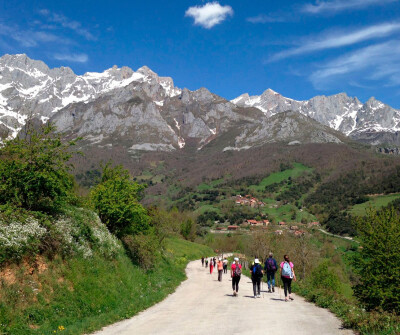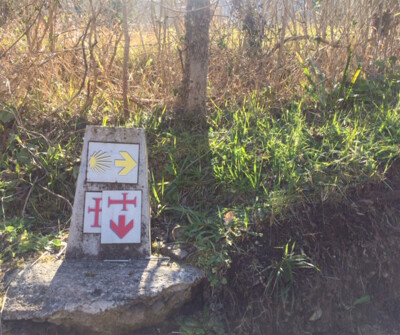The Camino Lebaniego begins in San Vicente de la Barquera, one of the most important and beautiful coastal towns of Cantabria. With little unevenness and an acceptable distance, this first stage of the Camino Lebaniego will be for the pilgrim a contact with the route of the crucifixes, which will be complicated in later stages.
READ MORE
San Vicente de la Barquera has many attractions. Its church,
castle and the remains of its walls are combined with excellent gastronomy,
beautiful beaches and spectacular views of the Picos de Europa. Before setting
off, don't hesitate to get to know this seaside town in depth.
Back on the Camino Lebaniego, our route will begin next to
the church of Nuestra Señora de los Ángeles, in Gothic style, and will allow us
to see the remains of the Hospital de la Concepción, a former pilgrims'
hospital.
At the Puente de la Maza bridge, an essential part of any
picture of San Vicente de la Barquera, we leave the village via the Ronda de la
Encrucijada street.
Cross the A-8 motorway over an overpass and head towards
Serdio, some 8 km away. There are two options: continue on tarmac or follow the
official route, a slightly longer but more beautiful route.
The stage continues along a mountain track to Muñorrodero.
Here the pilgrims heading to Santiago via the Camino del Norte, who should
follow the yellow arrows, coincide with the pilgrims heading to Santo Toribio,
who should follow the red arrows.
Right in Muñorrodero begins the 8 km long Senda Fluvial del
Nansa, which runs through a riverside forest and wooden footbridges. After
crossing the river Nansa we continue our route to Cabanzón.
And, again, the
pilgrim must choose between two options: follow the official route along a
paved track or take a detour along a river path, only practicable in summer,
when the river is low.
In Cabanzón we will have time to recover our strength and
admire its medieval tower before continuing on to our destination: Cades,
barely 5 kilometres away.
Cades is in a rural mountain area, bathed by the waters of
the river Nansa. In addition to its landscape, the church of San Juan Bautista
and the Cades Ironworks complex are of outstanding heritage value.
This former forge is one of the many places where iron ore
was processed in the area. After a process of restoration, this complex
consists of an emblazoned house, mills, a chapel and the forge itself, which we
recommend your visit.


 Filter
Filter
